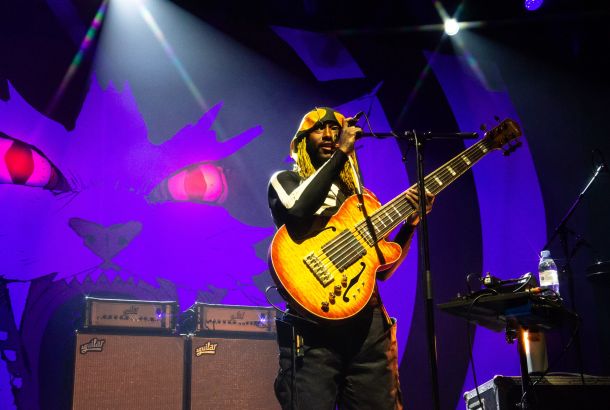Music and design – a dying art?
It’s the year 2013 and we still don’t have flying cars. We can’t teleport and the world isn’t overpopulated with robots (other than infuriating self service checkouts at supermarkets). But what we can do is purchase and download an album wherever we are in the world, right from our mobile phones. The downloading of digital music, whether by legal means or otherwise, has seen such incredible growth over the past 10 years that it’s no wonder independent record shops are a dying breed, and even high street giants like HMV are plummeting into administration. Digital downloads actually overtook physical music sales in the US last year. CDs are dead, long live the mp3! It’s a shame then, that I’m vehemently against this new digital craze, but effectively powerless to stop it.
I’m not some ignorant vinyl aficionado so obsessed with his latest purchase that he can’t see further than its 12” diameter. I know digital downloads are cheap, and their instant accessibility satisfies the impatient needs of the iPod generation. There is, however, a lot to be said for the feel of a tangible product in your hands: the physical manifestation of an artist’s musical output, the anticipation as you rip open the packaging, pore over the liner notes and prepare yourself for what could be the greatest hour of musical ecstasy you’ve ever experienced.
I will rue the day that I have to settle for a downloadable image for my album’s packaging. Music and design go hand in hand, a relationship explored most famously by Manchester’s very own Factory Records in the ‘80s. Not only were they responsible for hugely influential bands like Joy Division, they even built the infamous Haçienda nightclub that revolutionised the dance-music scene and led to the ‘Madchester’ era so brilliantly portrayed in the film 24 Hour Party People. But more than that, they brought together music and design in a union that would forever shape Manchester’s cultural identity, turning industrialism into genius design. Everything they did was branded with its own FAC catalogue number, even co-founder Tony Wilson’s coffin was catalogued as FAC 501, forever securing his position as music legend and Mr. Manchester himself.
When it came to music packaging, their attention to detail was so immaculate it eventually ran them into the ground. New Order’s single Blue Monday may be the most recognisable dance anthem of all time, but it holds a special significance in the Factory legend for other reasons. Designed by Peter Saville, its packaging was so intricate and meticulously produced that they actually made a loss on every copy sold. This wouldn’t have been too problematic, if it didn’t go on to become the biggest selling 12” single of all time. It’s stories like these that epitomise the Factory ethos.
Just run your fingers over the embossed cover of Unknown Pleasures, the actual banana peel sticker on The Velvet Underground & Nico; admire the contrasting black and white sides of the fantastical Queen II, and the minimalist design of The Beatles’ White Album. In fact the best example of all comes from The Durutti Column’s debut album, which had a sleeve made of sandpaper to destroy the adjacent records in your collection. The charm of the story knows no bounds, as it turns out many of the sleeves were hand-made by Ian Curtis of Joy Division, who wanted to earn a bit of extra cash, while the other members of the band watched porn in the same room. Now if that isn’t reason enough to mourn the decline of the physical record, I don’t know what is.
You may not realise it now, but it’ll be a dark day when the digital world finally takes over.







